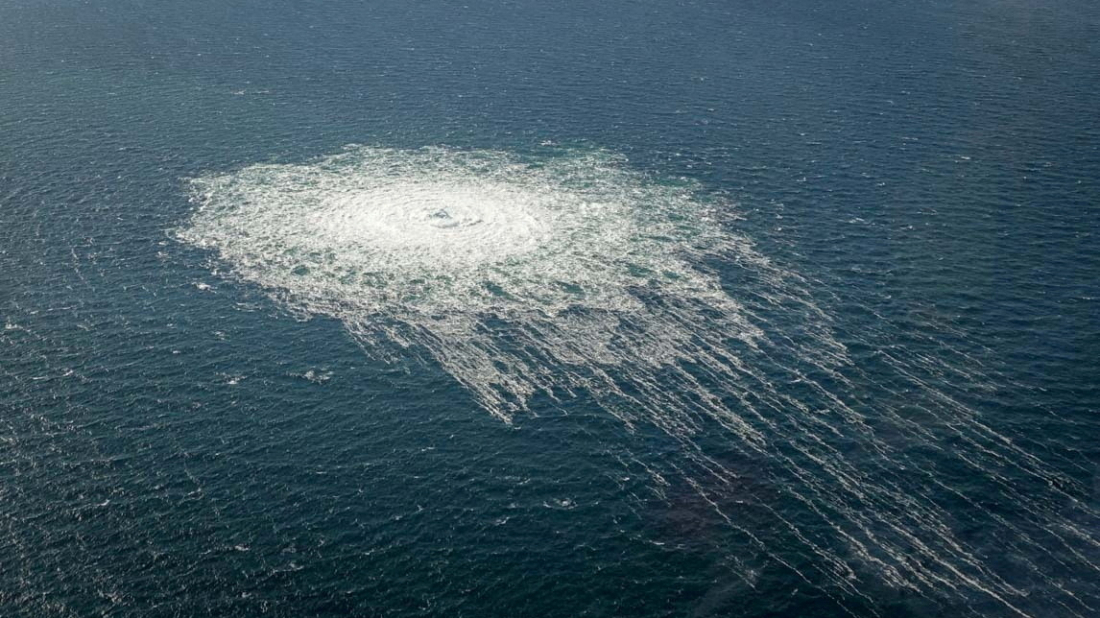Ukraine, Russia and U.S. to hold third round of Geneva talks as fighting intensifies
Representatives of Ukraine, Russia and the United States are set to meet in Geneva for a third round of trilateral negotiations aimed at ending the ne...

NATO has strengthened its security to safeguard undersea infrastructure, since a suspected sabotage in January this year in the Baltic Sea. The alliance now deploys air and naval patrols, and warns that attacks will not go unpunished.
A lot of what we rely on to for our daily lives lies under the sea, such as power lines, data cables and pipelines.
These could be prone to suspected sabotage attacks particularly in the North and Baltic Seas according to NATO which has increased its security in the area after a suspected sabotage attack in January and in previous years.
These systems carry gas, electricity, more than $10 trillion in daily financial transactions, and 95% of global internet traffic, making them essential for energy supply, finance, communications, and trade.
Damage to these networks could cut power, disrupt the internet, halt financial operations, and affect shipping, marking them as a high-priority target for protection.
But this year, NATO has stepped up its surveillance with enhanced air and naval patrols. Ships that pass near key sites are monitored and questioned if suspicious, while pipelines and cable-s are checked using sonar, drones, and divers.
This is not the first time such incidents have occurred. Previous damage has been reported in various locations, and similar operations were announced by NATO earlier this year.
A new centre has been set up in Northwood in the UK, within NATO’s maritime command to protect critical undersea infrastructure, to facilitate operations and to send forces to protect these critical systems. It's all managed by a special team at NATO Headquarters in Brussels.
U.S. Ambassador to NATO Matthew Whitaker said China has the power to bring an end to Russia’s war in Ukraine, arguing that Beijing is enabling Moscow’s military campaign.
Austria’s Janine Flock won the gold medal in the women’s skeleton event at the Milano-Cortina 2026 Winter Olympics on Saturday.
Iran’s Supreme National Security Council Secretary Ali Larijani said the United States could evaluate its own interests separately from those of Israel in ongoing negotiations between Tehran and Washington.
U.S. Secretary of State Marco Rubio on Sunday (15 February) called it “troubling” a report by five European allies blaming Russia for killing late Kremlin critic Alexei Navalny using a toxin from poison dart frogs.
Israel’s National Guard is preparing to deploy drones capable of firing tear gas at Palestinians in the occupied West Bank, including East Jerusalem, as part of security preparations ahead of the Muslim holy month of Ramadan, Israeli Channel 12 reported on Saturday.
The Pentagon has threatened to designate artificial intelligence firm Anthropic as a “supply chain risk” amid a dispute over the military use of its Claude AI model, according to a report published Monday.
Representatives of Ukraine, Russia and the United States are set to meet in Geneva for a third round of trilateral negotiations aimed at ending the nearly four-year war, even as both sides intensify military pressure on the ground.
The Prime Minister, Mark Carney, announced on 16 February that the Honourable Janice Charette has been appointed as the next Chief Trade Negotiator to the United States.
Cuba’s fuel crisis has turned into a waste crisis, with garbage piling up on most street corners in Havana as many collection trucks lack enough petrol to operate.
Day 10 of the Milano Cortina 2026 Winter Olympics delivered high-stakes semifinals, dramatic finishes and classic podium moments across Milan and the Italian Alps. Photographers captured split seconds of symmetry before puck drops, explosive turns on the ice and triumphant celebrations.
You can download the AnewZ application from Play Store and the App Store.

What is your opinion on this topic?
Leave the first comment